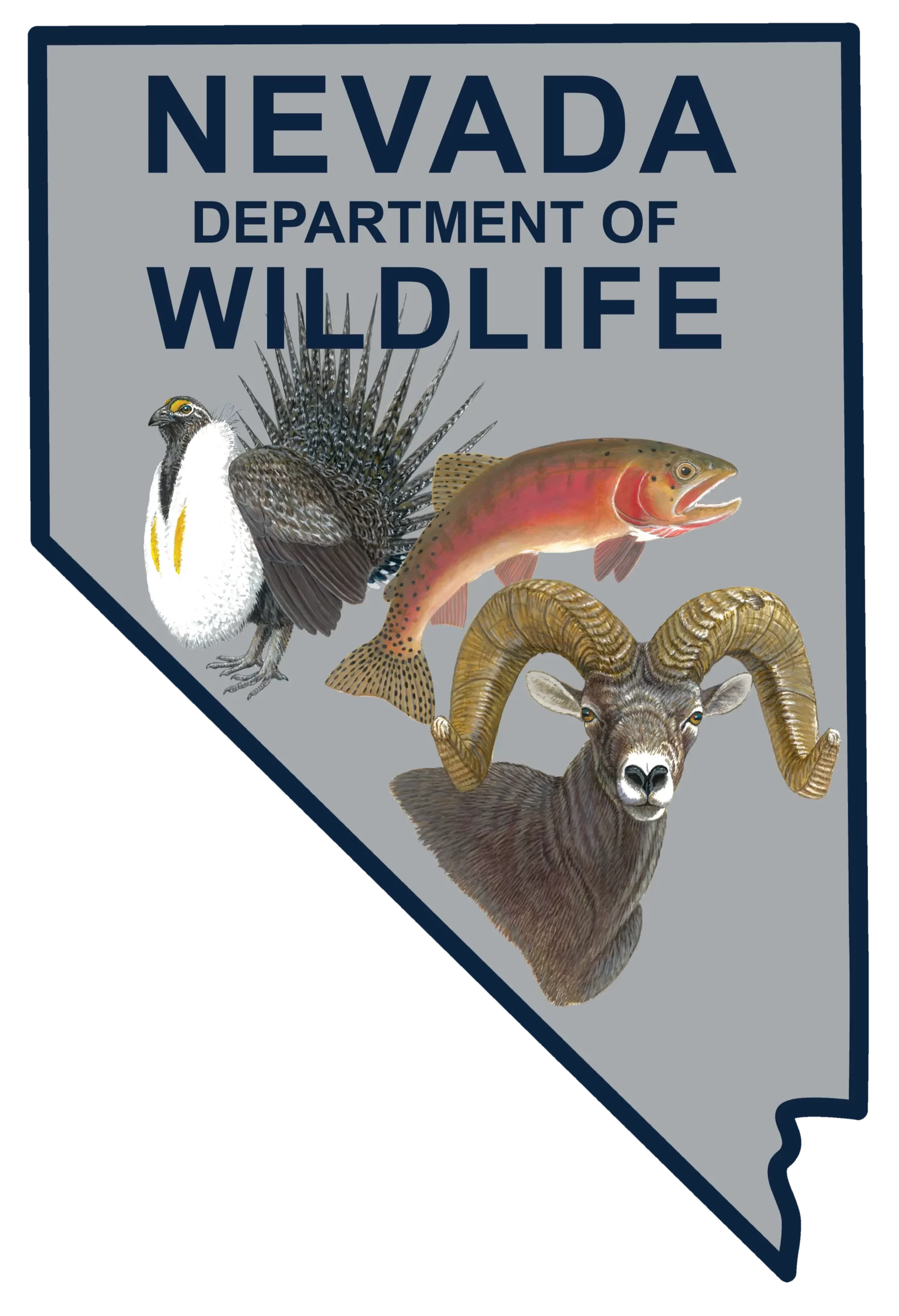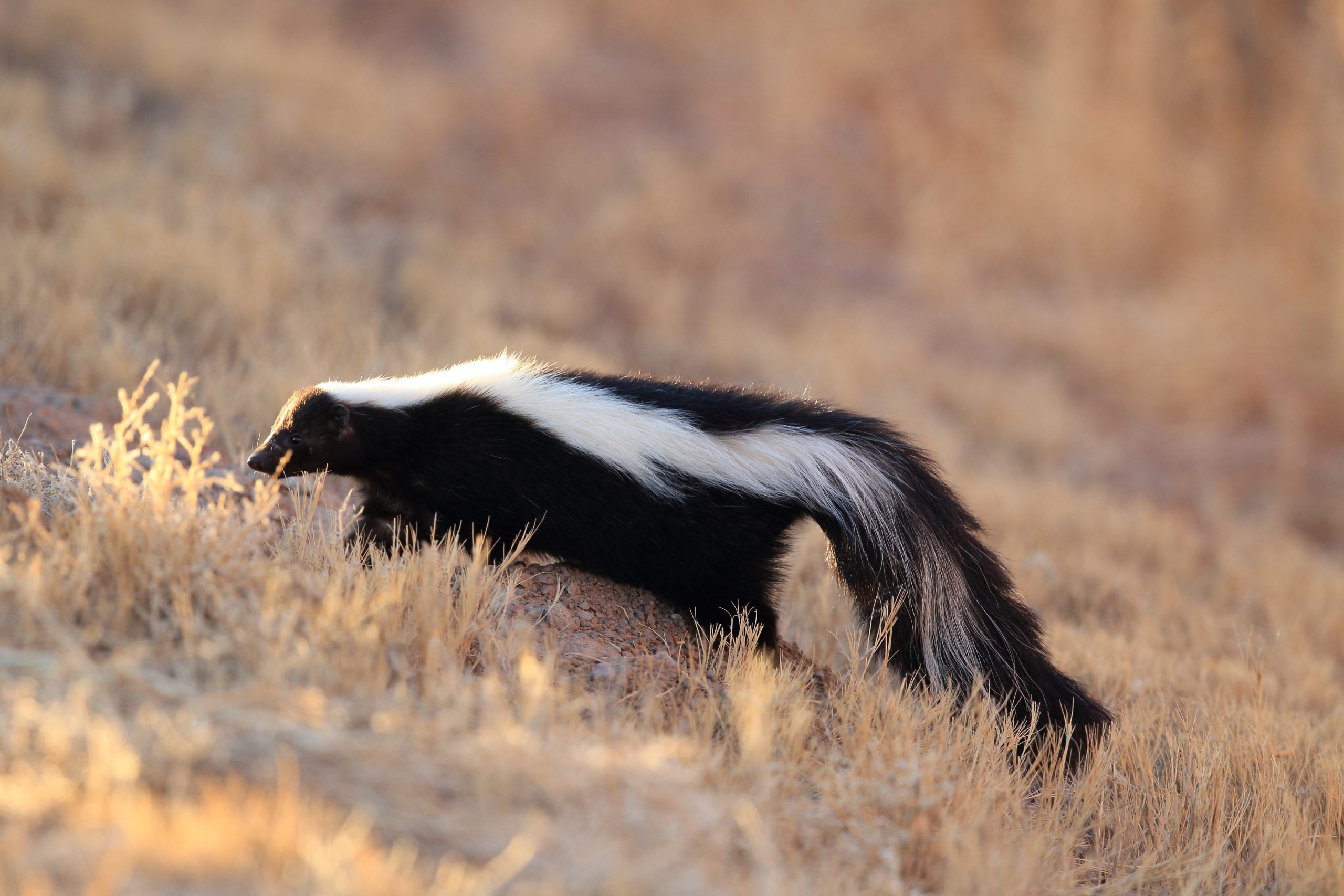Raccoons and skunks can be found throughout the United States and in Nevada. They are often found in wooded areas near water. Oftentimes our backyards offer great opportunities for both raccoons and skunks to make a home. Have some large trees? Maybe a water feature or pond? These, as well as the plethora of food resources that we provide make our neighborhoods perfect habitat for skunks and raccoons.
There’s a skunk or raccoon in my yard, what should I do?
The first thing you should do if you spy a raccoon or skunk in your yard is determine why it’s there. All animals need a source of food, water and shelter to survive. Is your backyard providing any of these resources? If so, try and remove that resource so the raccoons can no longer access it! Here are some other modifications you can make to your home to make it less appealing:
- Raccoons may enter your yard in search of food and den sites. They can be attracted to: pet food, garbage, bird seed, crawl spaces, brush piles, fruit, backyard chickens, etc.
- Bring garbage cans inside or reinforce them with locks to prevent wildlife from accessing food and creating a mess.
- Avoid planting fruits and vegetables in your garden. Or use chicken wire and deterrents around your garden.
- Cut away any overhanging branches around the house to keep raccoons from nesting on your roof or gutters.
I’m worried about the safety of my pet, what do you suggest?
While raccoons and skunks are unlikely to attack a pet, if a raccoon is cornered, sick, injured, or protecting young, it may be defensive. Skunks also have their amazing, but very smelly defense mechanism, so trying to keep pets away from any wildlife is very important. Small pets should also be looked after more carefully. Here are some tips for your pets:
- Supervise pets when outside, especially at night.
- If they are outside alone, put them in fully enclosed runs that have a roof.
- Close up dog or cat doors at night to make sure curious critters don’t find their way inside.
- Never allow your pet to interact with any wildlife.
What happens if I see a raccoon?
If you come into close contact with a raccoon, keep a safe distance and be large, giving them enough room to escape. From a distance, haze raccoons out of your area by making loud noises or spraying water in the direction of the raccoon.
If they happen to enter your home, open doors that can lead outside to provide them an escape route, closing off access to the rest of the house.
What happens if I see a skunk?
If you happen to see a skunk in your backyard, make sure to give it plenty of space and a way to exit the yard. Do not attempt to approach them! They can spray up to 15 feet and can discharge their spray up to 5 times in a row. Typically, skunks will use their spray as a last resort. Backing away and giving the animal plenty of space should keep you safe from a potentially smelly situation. Next, try to figure out why it is in the area and remove that resource.
Can these animals be removed?
Removal is an option to control raccoons in the area however this is a short-term solution. If there is good habitat in the area, more raccoons will likely come. Trying to alter the habitat and make it less inviting is a much better long-term solution to your raccoon and skunk woes.
If you would like to have the animals removed, there are private critter removal companies that can be hired to trap and remove the animals. NDOW does not provide this as a service and we do not loan traps for removal.

